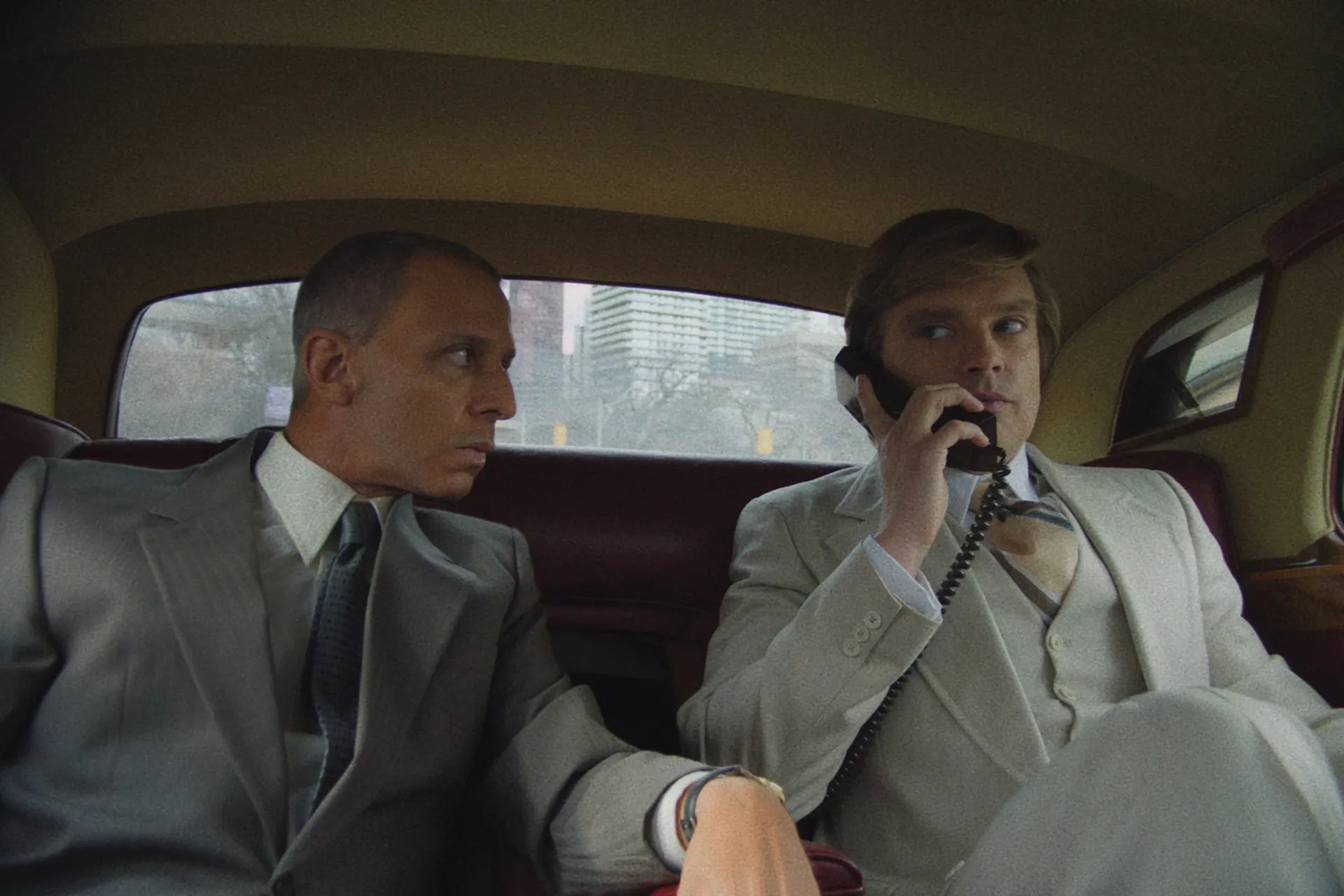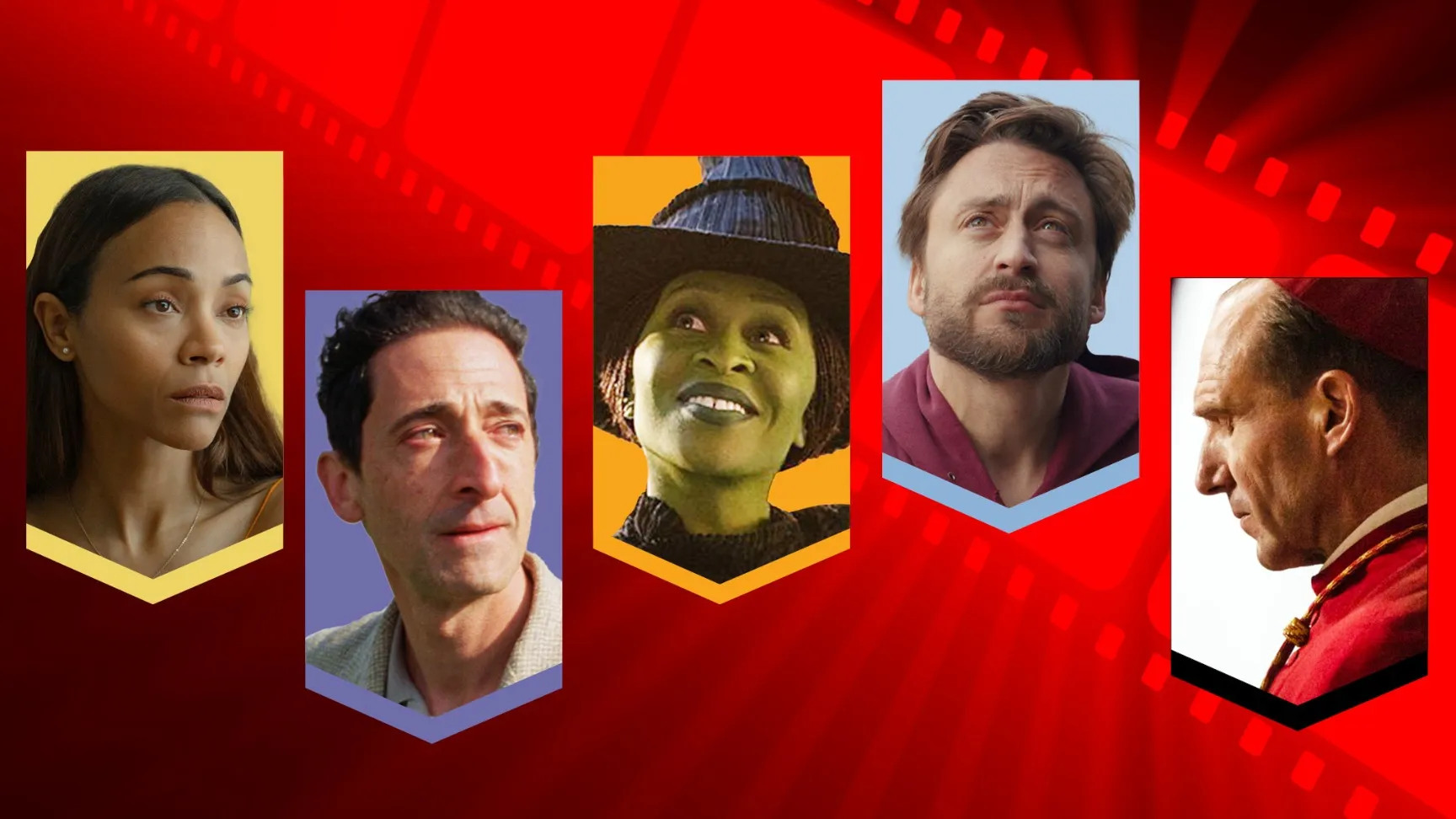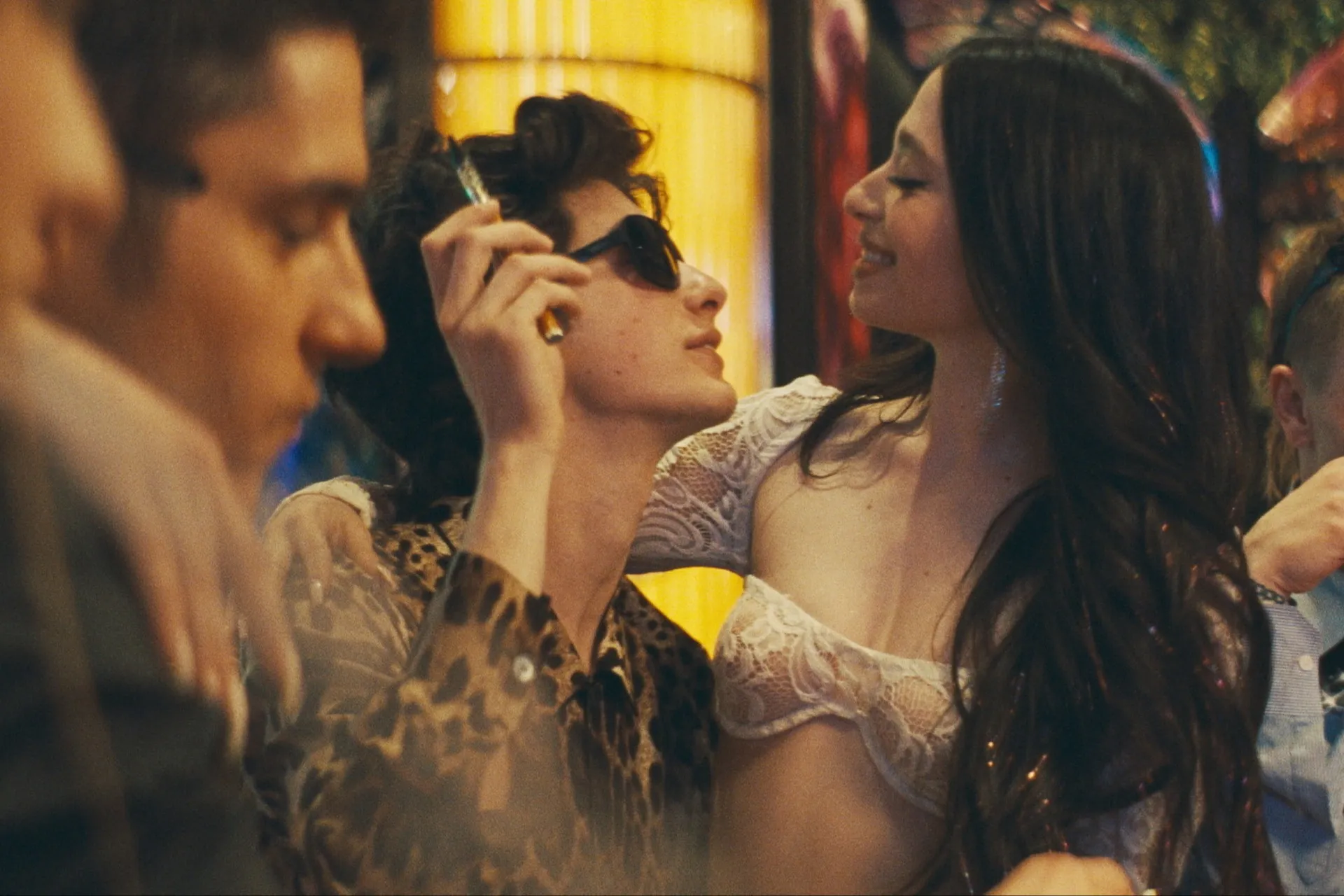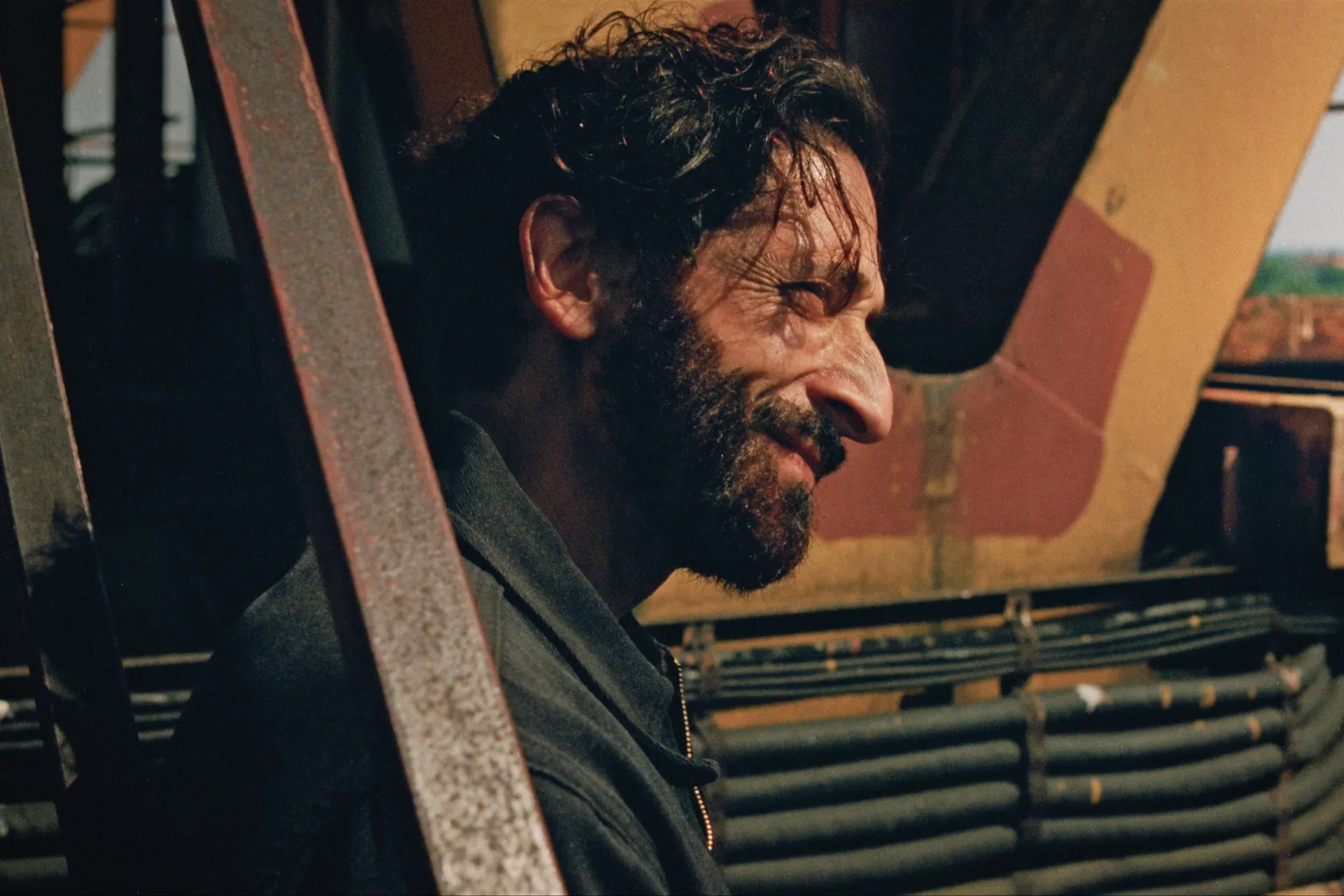Why is no one talking about Donald Trump? The question could only come from a place of escapism: the movies. At Sunday’s Oscars, Best Actor nominees include Sebastian Stan, who plays the man who would be president in biopic The Apprentice. He is joined by Jeremy Strong, the Succession star up for Best Supporting Actor for his performance as Roy Cohn, the early Trump’s infamous legal fixer.
And yet the pair and their film are awards-season bystanders. Neither will win. Nor did they ever have a chance.
Delayed by the Los Angeles wildfires, the Oscar nominations were finally announced on January 23. By then, it was three days after the presidential inauguration, watched from the VIP seats by Elon Musk, Jeff Bezos and Mark Zuckerberg. Compared with the ring-kissing of the tech moguls, the honouring of Stan and Strong felt like notable dissent — not least with observers already asking what place the cluster of studios and streamers once known as Hollywood would have in the US of Trump 2.0.

If you haven’t seen The Apprentice, you may not know quite how unflattering it is. Set mostly in the 1970s, it depicts a young Trump learning all he knows from the venal Cohn, lawyer to disgraced senator Joseph McCarthy and the mob. Trump is also portrayed as a business incompetent, and as the rapist of his then wife Ivana Trump (an alleged incident that Ivana ultimately recanted and he has denied as “obviously false”).
So why have the film’s Oscar nominations been met with silence from the White House? Maybe the answer is as simple as Trump already having said his piece. After The Apprentice premiered at Cannes last May, legal action was threatened. A 1am social media post following the US release in October read: “HUMAN SCUM”.
Nevertheless, it is surprising to find the Academy unravaged. No previous version of Trump would have let the insult stand. You suspect, if pressed, the line would be that no one now cares enough about the awards to merit the effort. The Sadly Irrelevant Oscars Have Been Failing Horribly For Many Years, and so on. As can sometimes be the case with Trump, there is an awkward nugget of truth in that.
At this point in the first Trump presidency, the 2017 Oscars were defined by the out-of-nowhere success of Moonlight, Barry Jenkins’ electric story of Black boyhood in Miami. By contrast, the 2025 Oscars will probably go down as a grim parade of grubby controversies in which Trump is the only divisive subject not under discussion.
Amid the mad acceleration of the news cycle and social media, you might have seen the occasional red carpet antic from Timothée Chalamet, star of Bob Dylan biopic A Complete Unknown, or wondered if you really had a free 215 minutes to watch postwar refugee epic The Brutalist. The ill health of Pope Francis has put a sad spotlight on Vatican succession drama Conclave. But what has caused the biggest stir by far has been the rancour and recrimination around several leading films.
Much of it surrounded Best Picture nominee Emilia Pérez — a lurid musical about a narco cartel leader who transitions to a woman, pushed heavily enough by Netflix to win 13 nominations. That was before the long, noisy furore sparked by crass historical social media posts about Islam and more from star Karla Sofía Gascón. A public death spiral ensued.
Oscars 2025: vote for your favourites

In a chaotic year for the Academy, who should take home the top prizes? Vote in our interactive poll and see who FT readers prefer
But other nominees would also be besmirched. For Anora, about a New York sex worker romancing a Russian oligarch’s son, the problem was shooting without an “intimacy co-ordinator” of the kind that has become industry standard in the wake of #MeToo. Grandiose epic The Brutalist then caused dismay when found to have been made with the help of AI. This week, The Apprentice itself finally became the subject of a scandal, with director Ali Abbasi accused of groping an actor at an awards party.
The anti-“woke” brigade will no doubt howl with laughter. Alleged incontinent behaviour from Abbasi puts the cherry on an already delicious cake. To many conservatives, Hollywood has long been a byword for liberal cant. Some on the left will be wishing for more vocal Hollywood opposition, but in the past that has only pushed voters to the right.

For that constituency, it will be sweet poetic justice that issues of identity and #MeToo could end up as weapons turned back on Hollywood. For the past decade, the Academy has tried desperately to be a model for corporate diversity. How much notice the studios ever took is an open question. They certainly won’t now, in a climate where a federal employee could risk their job by even observing that there is still just one film directed by a woman among 10 Best Picture nominees (Coralie Fargeat for gory Hollywood satire The Substance).
Trump’s silence on the Oscars has helped starve them of much-needed oxygen, but it is easy to get carried away with the idea of him as grand bewitcher. The Apprentice was sidelined even before he was re-elected. Despite saleable stars and good reviews, every major distributor and streamer passed on it before little-known independent Briarcliff Entertainment took the bite, leaving the film without the deep pockets needed for an Oscars campaign.
And when the market goes into hiding, the consequences are profound — the audience literally doesn’t know what it’s missing. The same applies to No Other Land, an acclaimed documentary about the Israeli military and a group of Palestinian villages, which no US company has released even after an Oscar nomination.
It isn’t only studios choosing safety first. An awards campaign fixture is US TV show Actors on Actors, in which stars pair off to discuss each other’s work. This Oscar season, Stan was unable to take part — because no other actor would appear with him. “They didn’t want to talk about Donald Trump,” the producers confirmed.
People tread carefully in the new America. A wider pattern of self-censorship is taking hold. Netflix recently sought to publicise new action series Zero Day while telling journalists that star Robert De Niro — playing a former president and previously an outspoken of the current one — would not answer “political” questions.

The biggest actors now typically only give interviews to outlets that keep questions on message, which tends to mean not asking about the US president. “I don’t see how that pertains to me,” Best Actor nominee Adrien Brody told me in January when I mentioned Trump. He didn’t want to talk politics while promoting The Brutalist, a story of Holocaust survival and American immigration.
In Hollywood, apolitical is the new look. Every sign suggests the film industry’s defiance has already peaked, with Stan and Strong invited to compete for a prize they can’t win.
But then, the mutual hostility of Hollywood and Trump has always been exaggerated. In reality, Trump was a multiple Oscar night attendee until his political reinvention, while JD Vance is the first vice-president to begin the job already the subject of a lucrative Netflix biopic, Hillbilly Elegy. US film studios simply won’t spend time on the wrong side of power.
After all, when Jeff Bezos attended the inauguration, he was already representing Amazon as an online retail giant and a movie producer. And among his fellow executives at other studios, it would be easy to overestimate the distaste at their Silicon Valley counterparts saluting the president. The truth may be closer to a wish for their own seat — should 2029 mark the start of Trump’s third term.
The Academy Awards take place on March 2
Find out about our latest stories first — follow FT Weekend on Instagram and X, and sign up to receive the FT Weekend newsletter every Saturday morning